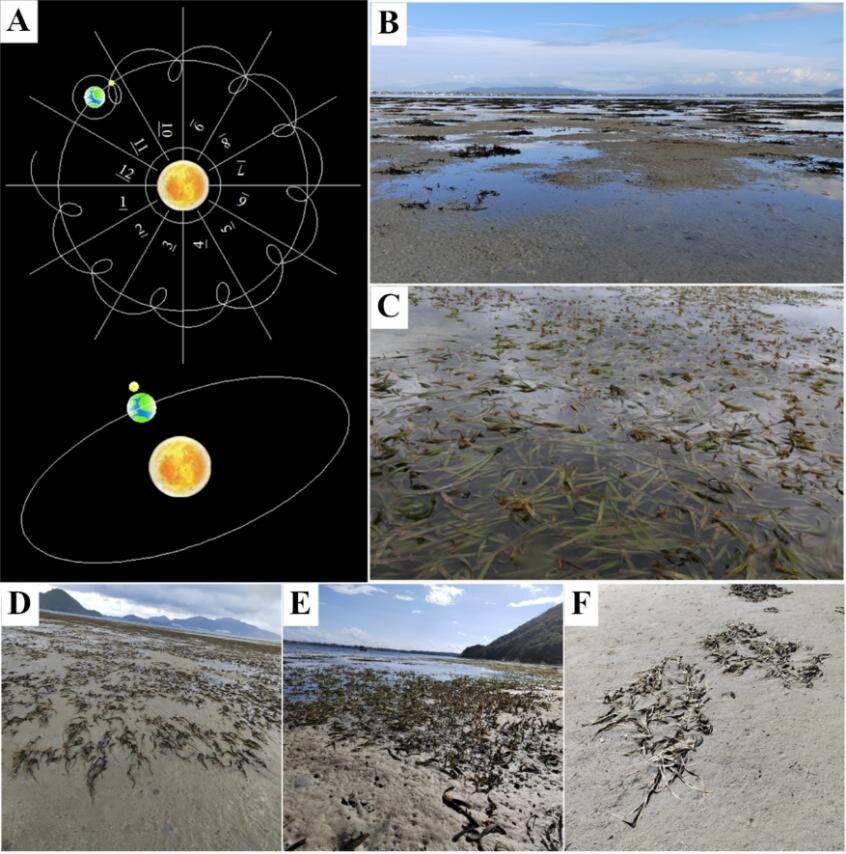Seagrass, a group of aquatic angiosperms, grows in shallow waters in the coastal sea and contributes most of the primary production while participating in many important ecological processes. Heat stress threatens the survival of seagrass, but its damage mechanisms are unclear.
Recently, a research team led by Prof. Liu Jianguo from the Institute of Oceanology of the Chinese Academy of Sciences (IOCAS) primarily explained the physiological and biochemical mechanisms underlying the decline of tropical seagrass meadows caused by heat stress combined with high light at different functional levels. The study was published in Marine Pollution Bulletin.

During the lowest tide, intertidal seagrass is frequently faced with the combined stress of exposure to air, direct sunlight, and high temperature, which may have a strongly negative impact on the survival of seagrass, especially in the context of global warming.
The researchers found that the largest tropical seagrass Enhalus acoroides can withstand heat below 39°C in the dark. However, under high light, the tolerance to heat stress is greatly reduced. The combined effect of short-term exposure to heat and high light stress destroyed the photosystem II (PSII) and destroyed key components of the photosynthetic system in seagrass leaves.
Moreover, high light combined with heat stress caused severe oxidative stress in the seagrass, which led to irreversible damage to the seagrass.
These results clearly suggest that heat stress coupled with high light, may be an important cause for the decline of E. acoroides meadows.
“Our study reveals that ocean warming, especially when coupled with high light, exacerbates the decline of seagrass meadows and affects the ecological function of intertidal seagrass meadows,” said Dr. Zhang Mengjie, first author of the study.
“This serves as a warning that the effects of global warming on seagrass meadows will be even worse than expected,” said Prof. Liu, corresponding author of the study.
More information: Mengjie Zhang et al, Heat stress, especially when coupled with high light, accelerates the decline of tropical seagrass (Enhalus acoroides) meadows, Marine Pollution Bulletin (2023). DOI: 10.1016/j.marpolbul.2023.115043

